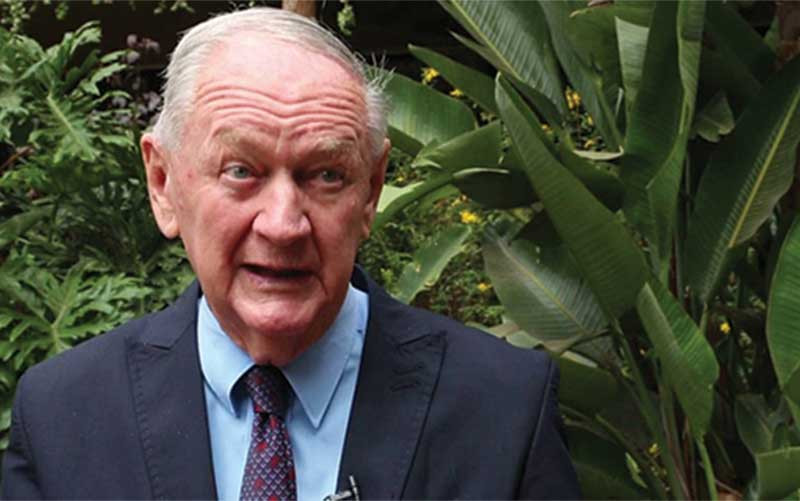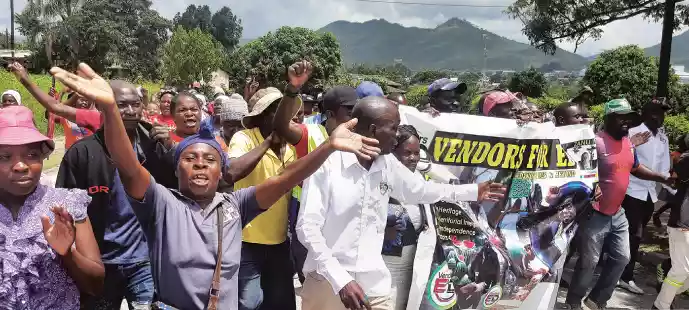
EVERY generation has to face up to a rapidly changing world, but today the changes are so rapid that they are almost impossible to understand, let alone follow.
My father was born into a world where air flight had not yet been made possible and he never, in all his life, travelled by air. He never left the continent of Africa and never owned a cellphone or held a credit card with a bank.
Today, this almost seems impossible, air transport is not expensive in most parts of the world, the cellphone is found everywhere, even in the vast deserts of Africa occupied by nomadic tribes.
Communication is now instantaneous and almost universal. Not long ago, governments could control what their populations read and watched or listened to on the radio, but not anymore.
In the field of economics, no country can be an island anymore. Global trade has grown massively in the past century so that when you walk into a retail store anywhere in the world, you will find goods from almost the entire globe on the shelves.
Any country not linked to the trade systems of the world will quickly find itself isolated and poorer. Britain is discovering this painful reality following its Brexit decision which cut it off from Europe. The economy of the United Kingdom is struggling. India now has a larger economy than Britain, its former colonial master.
One of the most amazing of these global changes has been the way the countries of the Far East have grasped the realities of the new world, created economies that have suddenly become major players and taken a substantial share of the world economy by storm.
Bangladesh with its clothing industry, Vietnam, Cambodia, Thailand, South Korea, Taiwan and China, have all joined the race to the top in world rankings in one field or another. Countries that have not taken this leap into the future, lie isolated and poor: North Korea being the prime example.
- Open letter to President Mnangagwa
- Feature: ‘It’s worse right now than under Mugabe’: Sikhala pays the price of opposition in solitary cell
- Masvingo turns down fire tender deal
- Human-wildlife conflict drive African wild dogs to extinction
Keep Reading
If it were not for its resources, Africa would be in much the same position, but the reasons are different.
We have failed to develop our infrastructure and, therefore, find ourselves locked out of the global boom in trade in manufactured and value-added products by costs.
Today the queue of heavy duty trucks trying to get into the Democratic Republic of Congo in the east of the country, is 73km long and holds at least 3 000 trucks, all fully loaded.
Drivers sleep in their vehicles and have no access to sanitary facilities, food or even water.
A hundred and thirty years ago, my ancestors built railways to link that part of Africa with the coast, they no longer operate it.
We live in a world where the gap between the rich and the poor becomes extreme every year.
People living in absolute poverty in South America and Africa and in the Middle East, look at the images on their cellphone screens and realise that a different world exists elsewhere.
The despair of every being unable to find a way out of poverty and plan to move, to go anywhere where it seems, life may be a bit better is commonplace.
Twenty years ago, a family in the Zambezi Valley of Zimbabwe held a gathering and decided that the only child, aged 17, should be sent to South Africa to find a job and send money back home.
His journey was funded and he left his village and travelled to Johannesburg, where he started work as a labourer.
After two years, he was caught in a sweep as an unregistered migrant and was locked in a train and sent on a four-day journey to Beitbridge in Zimbabwe.
There, he was hurled onto the platform with hundreds of others, hungry, thirsty and dirty.
We owned a business in Beitbridge and gave this 19-year-old a meal and a shower.
We asked him what he was going to do. He said he would go back to South Africa immediately as his family needed the money.
Without a passport, he swam across the Limpopo River and vanished back into the promised land.
Half the population of Somalia now lives abroad, one third of the Zimbabwean population now lives outside the country.
Remittances constitute the largest single source of funding in most developing countries — far exceeding aid flows or even export earnings.
But the cost to us all is much greater, the migrants most often represent the best of their countries’ populations — best educated, most enterprising. Their loss to home countries is beyond measure.
To get on top of this structural problem, made worse by the new world economy, we must make every effort to bring poor countries into the mainstream of world trade.
That means we must avail to poor countries access to global financial markets.
The United States currently has economic sanctions on 62 counties — one-third of the world. It is well known and recognised that sanctions do not change behaviour or policies.
A growing middle class does, rising incomes do, access to education does, but not sanctions. It is a double-edged sword: The use of the US dollar is declining everywhere; the euro will soon replace the US dollar as the main means of global trade.
Then we have to start rebuilding what infrastructure we had and expanding it all and making it more cost effective and efficient. It costs up to US$6 000 to bring a container from Durban in South Africa to Harare.
The Chinese move a container that size from Shanghai to Chicago for less than half that cost.
The difference means everything we consume is more expensive and the returns for our exports are less than they should be. We remain exporters of raw materials to the rest of the world and importers of finished goods — losing on both.
Transferring jobs abroad and investing in enterprises that we do not control and which exploit resources that are finite.
Globalising means that we have to be competitive to make inroads to our imports and to create sustainable jobs. To compound our problems, every item of equipment we import is more and more sophisticated. We find it difficult to maintain these new machines and even operate them.
Everything needs energy and we are now being denied the easy options of the past by the consensus abroad that we must reduce emissions, even though we are the smallest culprits in that regard.
How do we win in such a world? Clearly not by isolating ourselves, but by ensuring that we are competitive — at the very lowest level that means we must educate our children and give them skills that will make them players rather than spectators.
The new internet world makes that possible and at the very least, the wealthy world should give our children access.
Then we need to recognise that investment in infrastructure: Railways, roads, ports and shipping, air transport and energy, all come before growth and are essential if we want to pursue our own prosperity. Isolation in any form is not helpful.
Eddie Cross is an economist and former Bulawayo South legislator. He writes here in his personal capacity.







